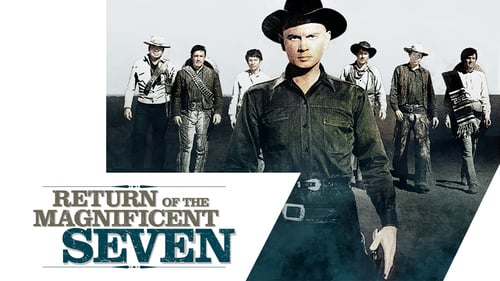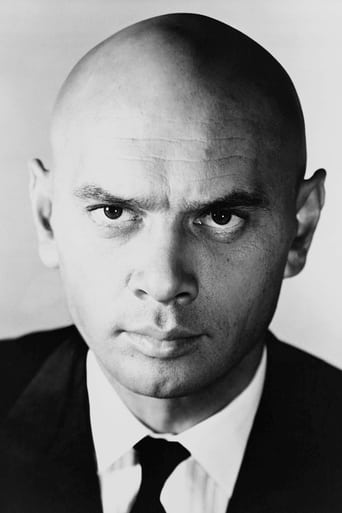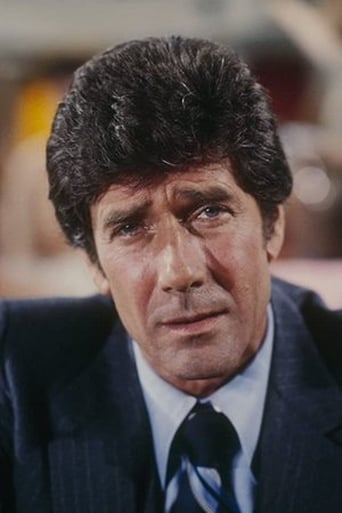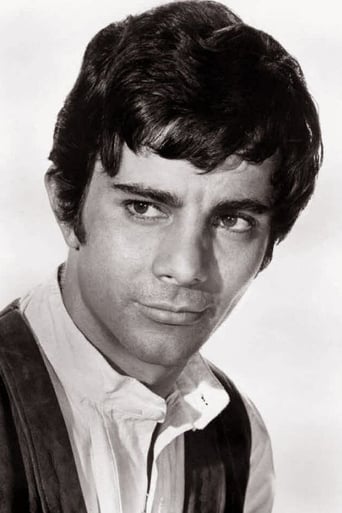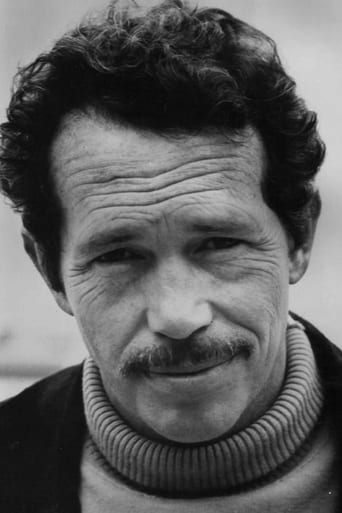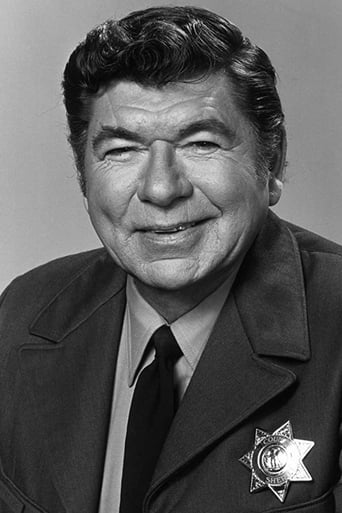Invaderbank
The film creates a perfect balance between action and depth of basic needs, in the midst of an infertile atmosphere.
Sabah Hensley
This is a dark and sometimes deeply uncomfortable drama
Kimball
Exactly the movie you think it is, but not the movie you want it to be.
Isbel
A terrific literary drama and character piece that shows how the process of creating art can be seen differently by those doing it and those looking at it from the outside.
Wizard-8
This first sequel to "The Magnificent Seven" is a disappointment. It is not a BAD western - there are a few bits of genuine merit to be found here and there. It was given an ample budget so that the production values look pretty good, and director Burt Kennedy captures the Spanish landscape well. He also directs the action sequences fairly well. The main problem, however, is the script (by Larry Cohen, of all people.) While the story runs a half hour or so less than the original movie, it feels like it moves a lot slower, with a lot less action sequences sprinkled in. An even worse problem is with the depiction of the characters. Most of the seven protagonists are given very little detail; we hardly learn a thing about them. It's even worse with the villain - we have to wait until almost half the movie has passed before he makes his first appearance, and while his motivations for what he is doing are kind of interesting, in total there's not enough done to make his character a strong and memorable villain. The best that can be said overall for this movie is that it's not the worse entry in the series - that dubious honor goes to "The Magnificent Seven Ride".
johnnyboyz
Return of the Seven is the ill-advised and quite stupid sequel to the rather remarkable The Magnificent Seven. It begins at the newly liberated Mexican village from the first film; a place in which the tale of Eli Wallach's Calvera, and his banishment by that of those brave American cowboys whom pooled together to fight him off, well on the way to being..... how does the opening narration of Peter Jackson's first of three Lord of the Rings films put it? ".......passed down into legend. Legend into myth" - a tale of good triumphing over evil for the ages. Life has resumed for these people, they continue onward to a rousing score with their lifestyle of farming, agriculture and catholicism – nary saying nor doing anything out of turn and enjoying their freedom. But hold on, for the presence of a new foe rears up and chaos once again is brought to the settlement; a foe arriving on horseback with a vast army of others in the time that it takes for one wounded villager to amble their way back to the town so as to warn everyone. One man is willing to stand up to them, the fresh set of bandits' superiority in this regard firmly established as any signs of resistance is stomped out.Beaten and weary, some stragglers escape and make it to a nearby town looking for some kind of help. There, at a bullring, they find Yul Brynner's Chris Adams enjoying the intimate nature of a matador doing his thing, and the level-headed nature that is required to take on such a situation. Adams led the charge against Calvera in the first film with Steve McQueen's Vin (now replaced by Robert Fuller), but is here enjoying a retirement of sorts whilst living in the locale due to some health problems; thus, an image of the man as someone perhaps not up to what the peasants desire of him is inferred. Regardless, he accepts, and with that catalyst begins one of the dafter westerns one will probably ever see. Adams, in spite of who he is, clearly has some sort of role or status, of which is never confirmed, but sees him granted unprecedented access to a nearby jail housing some of the leaner, meaner criminals in the territories. Here, he tries to get them to help with this new set of bandits. It is an access spawning a notion so bizarre, one would assume the modern equivalent of it being the letting out of a group of Broadmoor inmates to help deal with a larger than desired local city-set anti-social problem.But why does Chris even stop at just seven to go up against the seven hundred? The cynical nature of the answer lies with the fact the film is an exercise in brand name filmmaking. The original was a film in which the desperate call went out to anyone wanting to aid the town, so we always felt numbers were going to be sparse and we enjoyed the ambiguity around some of them doing it out of their own kindness with some of the others purely for the cash; here, he has the freedom to choose and preplan. The bandits are led by Lorca (Fernández), a big man with an even bigger hat. Crucially, and in stark relation to Sturges' wondrous first film, the fresh set of bandits and their policies are initially kept in the dark; the film later revealing them to be a collection of men led by a man flitting from isolated village to isolated village gathering the men, but leaving the women, and forcing them to a set location so they may aid in the building of a monument in memory of members of Lorca's deceased family.We recall Calvera's politic on the village from Sturges' first; something that saw him take many crops, but still leave them with barely enough, and reiterate he'll offer protection - something which tore the villagers and forced them into an ethic corner upon which they deduced ridding themselves of him was the better course of action, something that came to fray them even more when bloodshed became more plentiful. Here, someone who would be entirely successful in his goal had he just been a little more courteous, is placed up against a number of nymphomaniacs; criminals and serial-killers inexplicably let loose form their cells under the watchful eye of Adams and charged with trying to stop the man. We dislike "The Seven" about as much as we sympathise for Lorca's plight, which isn't much, but there is still that sentiment.There is a small exchange between Adams and that of Chico, a villager, detailing the fact Adams never actually learnt his surname thus creating room for Adams' character to really know with whom he fights this time round, although it doesn't materialise. In spite of the crew being the menaces to society that they are, we anticipate an arc with room for some sort of redemptive element, but it does not come. We sense Lorca's scenes with his men would have been better in Spanish, and with subtitles, instead of in English; the peasants, when they speak to each other, for dozens of seconds at a time, speak in Spanish, but for these scenes there are no subtitles. The whole thing builds to a messy fight sequence, a finale in which hundreds are involved and yet nothing is chaotic enough to prevent Adams and Lorca successfully finding one another amidst the battlefield to engage in a showdown destined to end the proceedings, proceedings we really wanted to end long before they do and proceedings that exist for no other reason than The Magnificent Seven worked as well as it did and money was to be made from the demand.
lost-in-limbo
The original film was a childhood favourite, but it's easy-going follow-up "The Return" is nothing more than a disappointing excuse to cash on the original's success. It wasn't a rushed production; as it came out quite a few years later but this time around the story and performances were nothing short than thin and lacklustre. Director Burt Kennedy does his best with some professionally well mounted set-pieces and striking visual details (with the beautifully spacious cinematography making a mark), but cult filmmaker Larry Cohen's screenplay is a generically unengaged rehash (where again sacrifice and hardship comes to the forefront) but it simply lacks the charm and killer punch. At times too talky and sluggishly paced without really making the characters emotionally attachable, that when it comes down to the nitty, gritty it feels mechanically laboured and short-lived. There was more effort in throwing around coin bags, than in its action. Yul Brynner returns, decked in black bringing back that tight-lipped, hardened illustration, but it's just wasn't enough to carry it along. The hired help is mostly an unmemorable one-note bunch (Claude Atkins, Elisa Montés) other than Warren Oates' verbose, womanising character. Robert Fuller scarcely takes over the character that Steve McQueen portrayed. As for the villains, they are even less interesting and imposing. Also Fernando Rey shows up as a priest. Composer Elmer Bernstein contributes once more with his excellently rousing music score. Technically its soundly made, but direly uninspired writing and performances sink it.
zardoz-13
No, Burt Kennedy's "Return of the Seven" doesn't surpass the John Sturges classic western "The Magnificent Seven." Remember, however, the Sturges film itself was a remake of Japanese director Akira Kurosawa's "The Seventh Samurai." First, I contend that "The Magnificent Seven" is one of the top ten best westerns. Second, I get a kick out of watching "Return of the Seven" for its own modest virtues. This sagebrusher came about as a result of the sequel craze in the 1960s. After the tension on the set of "The Magnificent Seven" with Yul Brynner, Steve McQueen refused to play second fiddle again to 'the King.' Anyway, McQueen's star was rising, while Brynner's stardom was waning.It is important to remember the theatrical title, too, because it is "Return of the Seven" with the omission of the adjective "Magnificent." Indeed, Brynner is the only one who made it back for the sequel. McQueen refused to and Horst Buchholz had disappeared in Europe making other movies.Mind you, around this time, the Europeans had spawned the so-called 'Spaghetti' western craze. Moreover, the Franco government in Spain subsidized filmmakers, and the rough-hewn Spanish scenery substituted more than adequately for the frontier American Southwest. While the scenery is more interesting to admire, the music stands out by itself, and the corpses outnumber the horses ten-to-one, you know that you're watching a 'Spaghetti' western. Oh, yeah, if the dialogue isn't lip-synched, you know you're watching a 'Spaghetti' western. Consequently, the Mirish Production company must have felt that they could knock out a sequel very inexpensively in Spain. Reportedly, the Alicante location where they filmed "Return of the Seven" had not been used in a picture. Unquestionably, "Return of the Seven" looks like an epic western, and Paul Vogel's cinematography is a feast for the eyes. Everybody looks really picturesque when they shoot their guns in this western. Burt Kennedy's "Seven" surpasses Sturges' "Seven" only in terms of its rugged, breath-taking scenery, Vogel's ace cinematography, and the lavish production values. Burt Kennedy stages some exception gunfights, but he cannot top the vintage Sturges shoot-outs."Return of the Seven" picks up years after the Sturges epic. An insane rancher decides to honor the memory of his two dead sons by abducting the farmers of several villages and having them build a shrine—a church—to commemorate his sons. Right off, "Return of the Seven" differs from "The Magnificent Seven." Francisco Lorca (Emilio Fernández of "The Wild Bunch") looms above all as a law unto himself, whereas Calvera (Eli Wallach) was a cunning, ruthless bandit that lived outside the law. These films have different villains. One of the villages that Lorca's men raid and enslave is Chico's village. Julian Mateos takes over the role that Horst Buchholz created.The worst scene is the first between Chris (Yul Brynner) and Vin (Robert Fuller of "Laramie") at the bullfight. Vin sidles up alongside Chris makes up a story that he is looking to collect bounty on Chris. Scenarist Larry Cohen of the "It's Alive" trilogy could have contrived a better reunion scene. Although Cohen received credit for writing the screenplay, all the dialogue sounds like something that Burt Kennedy would have written for Randolph Scott on those Budd Boetticher westerns of the 1950s. My favorite line is when Chris and Vin meet again during a cockfighting tournament and talk about their luck rounding up candidates. Vin asks, "Are they any good?" Chris retorts, "They're alive." Staying alive is what "Return of the Seven" is all about. Meanwhile, Cohen replays themes from the original. The villagers huddle in a rainy church and admit their fear of anything.The cast differs obviously and so do the characters. Burt Kennedy's "Seven" is harsh, definitely less sentimental than the Sturges "Seven." Some of these guys rub each other raw. Chris averts a gunfight between the loquacious Colbee (Warren Oates of "Ride the High Country") and the tight-lipped Frank (Claude Atkins of "A Man Called Sledge") in one scene. "Is he faster than you, Chris," Frank asks. "I'd hate to have the live on the difference," Chris observes. I'd heard this line in "Rio Bravo," but it fares better here. Another great scene occurs earlier when Chris buys Frank out of jail. "He killed five men in a gunfight," complains the jailer about the amount of Chris' bribe. "I could make it six," growls Frank. The bargain is sealed. The dialogue in this scene compares with the dialogue in the Charles Bronson scene in the original "Seven." This time the Seven confront at least fifty gunmen, twenty or so more than in the first picture. Interestingly, Chris gets not only Frank but also Luis Emilio Delgado (Vergílio Teixeira of "The Seventh Voyage of Sinbad") from the local jail. This anticipates the classic Lee Marvin war movie "The Dirty Dozen." Another scene that matched the original is the initial hero and the villains confrontation. Chris rides boldly into the construction site and demands the release of Chico and everybody else to the incredulity of Lorca's second-in-command Lopez (Rodolfo Acosta of "Rio Conchos") who replies, "I could have you shot like that." Lopez snaps. "There are five Winchesters pointed at your head." Chris is far more audacious than he ever was in "The Magnificent Seven." Emilio Fernández is a splendid foll0w-up to Eli Wallach. In real life, Wallach was gentle, whereas Fernández was violent, handy with a gun, literally a gangsta of sorts. He looks like he means business as the villain in "Return of the Seven." Like Yul Brynner, Elmer Bernstein encores his original Oscar nominated orchestral soundtrack and amazingly he received another nomination for it. If you haven't seen the first "Seven," you could swear that Bernstein created the score for the sequel!


